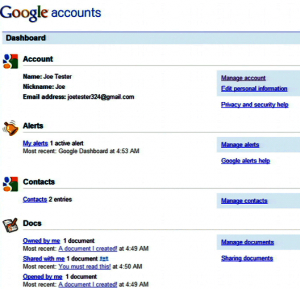Does "Delete forever" in Gmail really mean it?

I delete a lot of e-mail and have wondered recently whether the "delete forever" button in Gmail means what it implies. After all, "forever" is a very long time.
Here's what Google says: "Click Delete Forever. This time, it's really gone forever."
Gmail users know the drill. You delete unwanted messages from the inbox and they go into "Trash." From there, you check off the messages to be deleted, hit the "Delete forever" button and `poof,' they're gone. The presumption is that they are destroyed. They exist nowhere else within Google where they can be directly associated with your Gmail account. ![]()
Of course, deleting anything on a computer not to mention from the cloud is lot more complex than that. Messages you want destroyed could be in someone else's Gmail inbox or server, but there's nothing you can do about that. For the purposes of this post, I want to explore the notion of whether messages I want "deleted forever" from any association with my e-mail account.
In a nutshell, a Google spokeswoman told me the following:
"If you delete a message from your trash, it will be deleted forever from your Gmail. We do backup Gmail offline, so it may take up to 60 days to permanently delete any stored copies."
She implies messages are deleted, but didn't explicitly say so. She said deleting them from backup could take up to 60 days. I'll give her the benefit of the doubt. Google's boilerplate on the topic introduces more confusion if you really dissect it.
"Google keeps multiple backup copies of users' emails so that we can recover messages and restore accounts in case of errors or system failure, for some limited periods of time. Residual copies of deleted messages and accounts may take up to 60 days to be deleted from our servers. Deleted messages may also remain on offline backup systems for some limited period of time. This is standard practice in the email industry, which Gmail and other major webmail services follow in order to provide a reliable service for users. We will make reasonable efforts to remove deleted information from offline backup systems as quickly as is practical."
I find the boilerplate a bit vague about when deletions occur. On one hand, it says "residual copies" are deleted from servers within 60 days. What's a residual copy? Copies are the e-mails. Then it says e-mails could be kept on off-line backup systems for "some limited period of time (as in forever?). That's vague to say the least. Then there's the part you just KNOW was written by a Google attorney. Information is deleted "...as quickly as is practical." This policy has too many outs to suggest the deletion procedures work in a clockwork fashion.
Knowing how much information it amasses on individuals, Google recently introduced Google Dashboard that gives users a detailed snapshot of exactly what data and services clients are using. That helps, but mostly from an organizational point of view, not one of privacy (it's a bit scary that Google is so good at organizing everything for its millions of users).

As with so many things, trust boils down to believing what you're told and going on faith that Google lives up to its word. I have no reason to believe otherwise except that I usually believe otherwise.
Do you free secure in the Google cloud? Does your interpretation of "delete forever" match what Google says it is. Does Google live up to it in your opinion? How well Google does in protecting your privacy is all about perception, trust and ultimately, confidence.
Stayed tuned, I have more questions into Google about the mechanics of "delete forever."
Follow me on twitter.
This post was originally published on Smartplanet.com